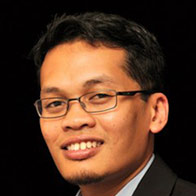SEPT 9 — On September 17, 2010, exactly a week after Hari Raya Aidilfitri, Parti Keadilan Rakyat (Keadilan) divisions across Malaysia will hold their AGMs. These meetings will be historic, and not just because Keadilan is having elections this year.
As a result of the party’s 2009 constitutional amendments, our national and divisional-level elections will be done on a one-member one-vote basis. This means that the party’s half-a-million members will have a direct say in choosing their leaders.
Most of Malaysia’s other major parties all conduct their elections indirectly. For instance, last year 2,500 Umno delegates voted on behalf of three million members.
For a young, Malaysia-wide party, our decision to hold direct elections is not a small undertaking. The cost of administering this election (with 150 election monitors) is not cheap. Yet Keadilan chose to embrace this reform to prove that Reformasi is not merely a slogan, but a principle.
Umno, interestingly enough, decided to increase the number of delegates to 60,000 shortly afterwards. Yet, Keadilan went against all precedents and decided that its members should have a right to be heard.
The past few weeks saw nominations for divisional positions being submitted. Many divisions will hold contests, some even six-cornered ones! I remember the party elections we had when I officially joined the Kelana Jaya Division in 2005.
Back then, we struggled to get sufficient members to fill in the necessary positions. It’s good to see that things are a little different now.
Understandably, it is the contest for national positions that is attracting the most attention. Candidates for the various posts have launched their campaigns. Some members of parliament, state assemblymen and state leadership councils have chosen to support them.
I, along with 13 PKR elected representatives from Selangor and Negri Sembilan, recently endorsed YB Azmin Ali, who is running for deputy president. At the press conference, a journalist asked whether our action was reminiscent of Umno’s electoral practices.
I beg to differ; we were merely stating our preferences for the party election. Our endorsements were not unusual.
In his campaign for the US Presidency, Barack Obama attracted endorsements not only from Democratic Party leaders but from a wide range of figures from American society. The candidates vying in the current British Labour Party leadership election have also received endorsements from members of parliament, local councillors, trade unions and newspapers.
Indeed, the American system of primaries was born out of a distaste for “smoke-filled rooms”, whereby party bosses selected leaders or candidates by private deals hidden from public scrutiny. Reformists in the early 20thcentury hoped that primaries would act as a gauge for the potential candidate’s popularity with the public.
Conversely, the People’s Action Party in Singapore selects its leaders through a top-down cadre system that puts the party firmly under the control of the party leadership. Only cadres, estimated to number 1,000 from a total of 10,000 members can attend, vote and run in Central Executive Committee elections.
To be a cadre, one has to be nominated by the MP in his branch and attend a series of selection interviews conducted by ministers and MPs. Originally introduced to stop the leftist infiltration that rocked the party in the 1960s, it has now become a tool to create a compliant party in the image of its leader.
Umno’s method of selecting its leaders, too, has been perceived as relying on deal-making and negotiations, without the ordinary members having much say. This not only removes public scrutiny from the process, but also reduces its credibility because it often gives rise to accusations — whether true or not — of massive corruption that the party affectionately calls “money politics.”
In fact, former Umno Perlis leader and political analyst Datuk Hashim Suboh claims that the cause of this — and the rise of silent lobbying in Umno — was from its negative attitude towards campaigning.
Keadilan chose to implement our constitutional reforms to avoid the second and third models. I don’t think, therefore that it’s very fair to say that our elections are “like Umno’s.”
Positive campaigning should be encouraged. How can democracy flourish when it’s frowned upon? It’s ironic that some people who spoke against PKR’s campaign guidelines are now complaining that there is too much campaigning in the party!
On the other hand, there are bound to be incidences when certain candidates fall victim to various insinuations. In cases like this, any evidence of wrongdoing or breach of ethics should be forwarded to the party’s Election Committee, which in turn must be above-board in discharging its duties in every case.
Most importantly, all members must get behind whoever is elected as the party’s leaders. Our ultimate goal is to win freedom and prosperity for all Malaysians and that can only come through a Pakatan Rakyat federal government.
I believe this is what all the candidates in Keadilan’s election want. I pledge to support our new-line up, and hope that my fellow members will do the same.
Not only is the future of our party, but that of Malaysia is at stake.
* The views expressed here are the personal opinion of the columnist.


Comments
Please refrain from nicknames or comments of a racist, sexist, personal, vulgar or derogatory nature, or you may risk being blocked from commenting in our website. We encourage commenters to use their real names as their username. As comments are moderated, they may not appear immediately or even on the same day you posted them. We also reserve the right to delete off-topic comments